Scientific Sessions
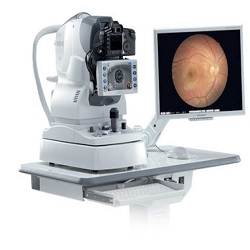
Track-01: Retinal Imaging and Diagnostic Advances
"Retinal Imaging and Diagnostic Advances" is a scientific session that delves into the forefront of ophthalmic imaging technologies and diagnostic methodologies specifically focused on the retina. This session explores cutting-edge advancements in imaging modalities, with a primary emphasis on Optical Coherence Tomography (OCT), fundus photography, and angiography. Researchers and clinicians present their work on improving the resolution, speed, and diagnostic capabilities of retinal imaging tools. The session aims to showcase innovative approaches for early detection and precise monitoring of retinal diseases, such as age-related macular degeneration, diabetic retinopathy, and retinal vascular disorders.
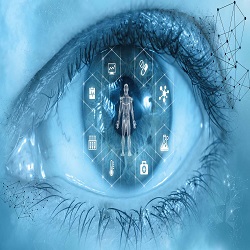
Track-02: Molecular Mechanisms of Ocular Diseases
The session on "Molecular Mechanisms of Ocular Diseases" provides a focused exploration into the genetic and molecular underpinnings of various eye disorders. Researchers and experts in the field present their investigations into the intricate molecular pathways, genetic factors, and cellular processes contributing to conditions such as glaucoma, macular degeneration, and hereditary eye diseases. This session aims to deepen our understanding of the molecular intricacies involved in the onset, progression, and manifestation of ocular disorders. Attendees gain insights into potential therapeutic targets, genetic markers, and molecular interventions that may pave the way for novel treatment approaches and personalized medicine in ophthalmology.
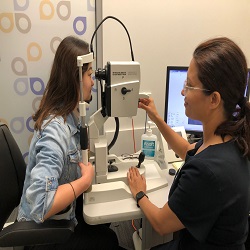
Track-03: Clinical Trials and Outcomes in Ophthalmology
The "Clinical Trials and Outcomes in Ophthalmology" session provides a comprehensive overview of the latest research methodologies, design strategies, and outcomes assessment in the field of ophthalmic clinical trials. Researchers, clinicians, and industry experts share insights into ongoing and completed trials, discussing the efficacy and safety of novel pharmaceuticals, surgical interventions, and therapeutic approaches. Attendees gain valuable knowledge on the rigorous processes involved in designing and conducting ophthalmic clinical trials, including patient selection, outcome measurement, and statistical analyses.
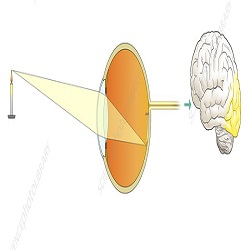
Track-04: Optics and Visual Physiology
The "Optics and Visual Physiology" session is a specialized exploration into the fundamental principles governing vision. This session delves into the intricate interplay between optics and the physiological processes underlying visual perception. Attendees will gain insights into topics such as light refraction, accommodation, and color vision, exploring the mechanisms through which the eye captures and processes visual information. Researchers and experts in optics present findings on how the eye's anatomical and physiological features contribute to visual acuity and adaptation to different environmental conditions.
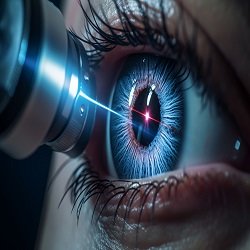
Track-05: Advancements in Corneal and Refractive Surgery
The session on "Advancements in Corneal and Refractive Surgery" offers a focused exploration into the latest innovations and techniques in corneal and refractive surgical procedures. Attendees will be introduced to cutting-edge advancements in corneal transplantation, refractive surgeries like LASIK and PRK, and emerging technologies shaping the field. Leading surgeons and researchers share insights into refined surgical techniques, advancements in femtosecond laser-assisted procedures, and the use of novel materials in corneal interventions. The session aims to provide a comprehensive overview of how these advancements enhance surgical outcomes, minimize recovery times, and address various corneal and refractive conditions.

Track-06: Neuroscience and Ocular Motor Control
The "Neuroscience and Ocular Motor Control" session delves into the intricate relationship between neuroscience and the control of eye movements. This specialized exploration focuses on understanding the neural mechanisms that govern eye motion, coordination, and visual perception. Attendees will gain insights into the brain's role in directing eye movements, maintaining binocular vision, and adapting to changes in the visual environment. Researchers and experts in neuroscience present findings on topics such as gaze stabilization, smooth pursuit movements, and saccades. The session aims to deepen our understanding of ocular motor control at the neurophysiological level, offering implications for diagnosing and managing disorders related to eye movement and coordination.

Track-07: Ocular Pharmacology and Drug Delivery
The session on "Ocular Pharmacology and Drug Delivery" provides a focused exploration into the pharmaceutical aspects of eye care. Attendees will delve into the intricate world of ocular pharmacology, examining the development and application of drugs for various eye conditions. The session also explores innovations in drug delivery systems designed to enhance the effectiveness of ocular medications while minimizing potential side effects. Researchers and experts present findings on novel formulations, sustained-release technologies, and targeted delivery methods to improve therapeutic outcomes for conditions such as glaucoma, retinal diseases, and ocular surface disorders.

Track-08: Visual Rehabilitation and Low Vision Aids
The session on "Visual Rehabilitation and Low Vision Aids" focuses on strategies and technologies aimed at improving the quality of life for individuals with visual impairments. Attendees will explore the field of visual rehabilitation, which encompasses various techniques and interventions to enhance independence and functionality for those with low vision. The session delves into the latest developments in low vision aids, including wearable technologies, electronic magnifiers, and adaptive devices. Experts and practitioners share insights into rehabilitation approaches, vision training, and assistive technologies designed to empower individuals with visual impairments in daily activities.
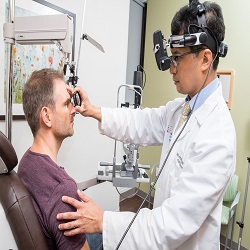
Track-09: Immunology of the Ocular Surface
The "Immunology of the Ocular Surface" session offers a specialized exploration into the complex interplay between the immune system and the delicate structures of the eye's surface. Attendees will delve into the immunological mechanisms that regulate ocular surface health and contribute to conditions such as dry eye, allergies, and autoimmune diseases affecting the eyes. Experts in immunology present findings on the unique immunological environment of the ocular surface, including the role of tear film components, mucosal immunity, and interactions with the external environment. The session aims to deepen our understanding of the immunological aspects of ocular health, offering insights into the pathogenesis of various eye disorders and potential immunomodulatory interventions.
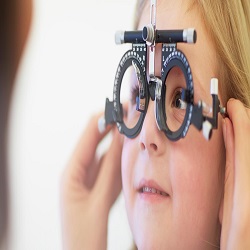
Track-10: Pediatric Ophthalmic Research
The "Pediatric Ophthalmic Research" session focuses on advancing knowledge and understanding in the realm of eye health for children. Attendees will explore the latest research findings in pediatric ophthalmology, covering topics such as visual development, common pediatric eye conditions, and innovative approaches to diagnosis and treatment. Experts in the field present insights into the unique challenges and considerations when addressing eye health in the pediatric population. The session aims to contribute to improved outcomes for young patients by fostering a deeper understanding of factors influencing visual development, early detection of eye disorders, and evidence-based approaches to pediatric eye care.
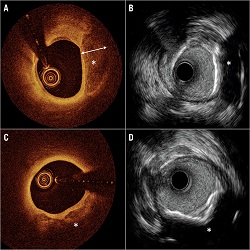
Track-11: Optical Coherence Tomography (OCT) Applications
The "Optical Coherence Tomography (OCT) Applications" session is dedicated to exploring the versatile applications of this advanced imaging technology in ophthalmology. Attendees will gain insights into the diverse uses of Optical Coherence Tomography, a non-invasive imaging modality providing high-resolution, cross-sectional images of ocular structures. Researchers and clinicians present findings on the broad spectrum of OCT applications, including anterior and posterior segment imaging, retinal mapping, and evaluation of structural changes in the eye. The session aims to showcase how OCT enhances diagnostic precision, facilitates early detection of eye conditions, and aids in monitoring disease progression.

Track-12: Public Health and Epidemiology in Ophthalmology
The "Public Health and Epidemiology in Ophthalmology" session focuses on the broader societal aspects of eye health. Attendees will explore the intersection of public health and ophthalmology, examining epidemiological studies and strategies aimed at preventing blindness and promoting eye wellness on a population level. Experts and researchers in the field present findings on the prevalence of eye diseases, risk factors, and disparities in access to eye care services. The session aims to contribute to the development of effective public health interventions, improving the overall ocular health of communities.
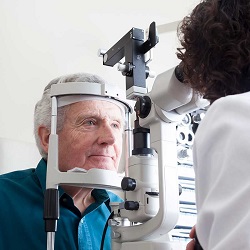
Track-13: Emerging Therapies for Glaucoma
The "Emerging Therapies for Glaucoma" session provides a comprehensive exploration of the latest advancements in the management of glaucoma, a progressive optic nerve disorder that can lead to vision loss. Attendees will delve into cutting-edge therapeutic approaches beyond traditional methods, including innovative medications, surgical interventions, and neuroprotective strategies. Experts in glaucoma research and treatment present findings on promising developments that aim to enhance intraocular pressure control and preserve optic nerve function. The session seeks to keep ophthalmologists and researchers informed about novel therapeutic avenues, ultimately contributing to the improved care and outcomes for individuals affected by glaucoma.
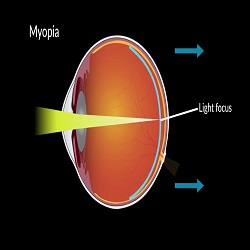
Track-14: Myopia Research: From Genetics to Interventions
The "Myopia Research: From Genetics to Interventions" session is dedicated to exploring the comprehensive spectrum of myopia, a prevalent refractive error. Attendees will gain insights into the latest research spanning from the genetic basis of myopia to innovative interventions aimed at managing and preventing its progression. Experts in myopia research present findings on genetic markers, environmental factors, and the intricate interplay influencing myopia development. The session also delves into interventions such as pharmaceuticals, orthokeratology, and lifestyle modifications designed to control myopia.
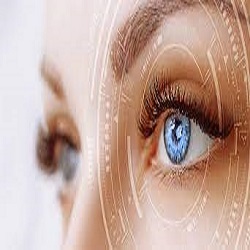
Track-15: Innovations in Contact Lens and Vision Correction
The "Innovations in Contact Lens and Vision Correction" session offers a focused exploration of the latest developments in contact lens technology and vision correction strategies. Attendees will gain insights into innovative materials, designs, and applications that have transformed the landscape of vision correction. Experts in the field present findings on advancements in contact lens comfort, breathability, and specialty lenses for conditions like astigmatism and presbyopia. The session also covers emerging technologies, such as smart contact lenses and those designed for therapeutic purposes.

Track-16: Refractive Error Epidemiology and Public Health Impact
The "Refractive Error Epidemiology and Public Health Impact" session is designed to delve into the population-level aspects of refractive errors and their broader implications on public health. Attendees will explore the prevalence, distribution, and socioeconomic impact of refractive errors such as myopia, hyperopia, and astigmatism. Experts in epidemiology and eye health present findings on the global burden of refractive errors, associated risk factors, and disparities in access to corrective measures. The session aims to contribute to a better understanding of the public health challenges posed by refractive errors, informing strategies for vision correction, preventive measures, and interventions to reduce the societal impact of uncorrected refractive errors.
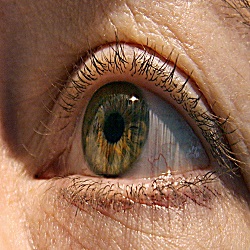
Track-17: Stem Cell Therapies for Ocular Regeneration
The "Stem Cell Therapies for Ocular Regeneration" session is dedicated to exploring the innovative field of regenerative medicine applied to eye health. Attendees will gain insights into the use of stem cells for repairing and regenerating ocular tissues. Experts in stem cell research and ophthalmology present findings on the potential applications of stem cell therapies for treating conditions such as corneal damage, retinal degeneration, and other ocular disorders. The session aims to showcase the promise and challenges of utilizing stem cells to restore visual function and repair damaged structures within the eye.
Track-18: Digital Health Solutions for Ophthalmic Care
The "Digital Health Solutions for Ophthalmic Care" session explores the intersection of technology and eye care, focusing on innovations that enhance patient care and streamline ophthalmic practices. Attendees will gain insights into the latest digital health solutions, including teleophthalmology, mobile applications, and remote monitoring tools. Experts in the field present findings on how these technologies improve access to eye care, enable remote consultations, and enhance diagnostic capabilities. The session aims to showcase the transformative impact of digital health on ophthalmic care delivery, patient engagement, and overall healthcare outcomes.
Mode of Presentation
Noveltics Group Contacts

Ophthalmology and Vision Science
OCTOBER 21-22, 2024ROME, ITALY